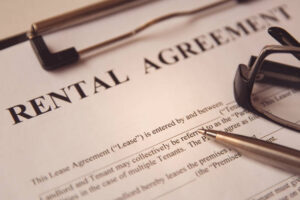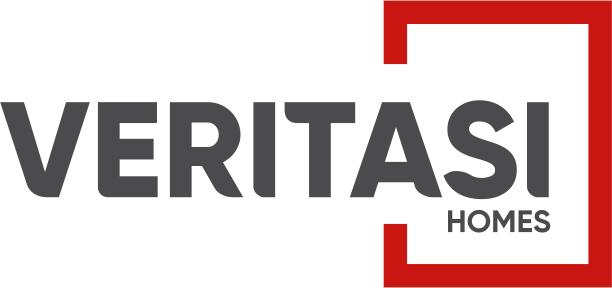Whether you’re new to real estate and have just acquired your first property, or you’re a real estate mogul with several investments under your belt, chances are that you have a couple of things to learn to have the best experience in the property investment sector.
Being a landlord is more than just acquiring a property. When done right, you enjoy the pride of having a quality property that your tenants rave about; plus, you get to expand your financial income. But when executed wrongly, you might end up facing conflicts and, in a worst-case scenario, legal issues.

So how best can you reap the benefits of land lordship and avoid the consequences? Through good property management.
WHAT IS PROPERTY MANAGEMENT?
Property management covers the maintenance, overseeing, and management of various commercial and/or residential real estate properties. This could range from collecting rent, supervising repairs and maintenance, to handling tenants’ complaints and regular inspections.
Usually, property management is a full-hand job, and most landlords recruit the help of a property manager or a property management firm. These are groups of experts who use their industry experience and hands-on knowledge to produce quality results and mitigate risks.
However, as a new landlord, it is quite helpful to learn some tips and tricks of property management when starting.
TOP 5 PROPERTY MANAGEMENT TIPS FOR NEW AND EXISTING LANDLORDS
1. Property Maintenance
This goes without saying that this point ought to be the first point. Your property is yours (not your tenants’) and thus, the maintenance of the property is a hundred percent your responsibility. If you intend to save up on costs, it’s best to think long-term and invest in quality renovation and repair materials.

The double point for carrying out this responsibility well is that it indicates your willingness to meet your end-of-the-lease agreement with your tenants and prevents future conflicts.
2. Create A Concrete Lease Agreement
Before taking in new tenants, it is crucial, as a landlord, that you create a well-thought-out contract that details all the rules of living in your property; plus other necessary conduct, your tenant is to put up during the period of tenancy.

This contract is called a lease agreement and should be documented in clear and specific words to prevent future hiccups regarding misunderstandings.
For extra precaution and to make sure you’re not moving over the borderline when laying down these rules, you can enlist the help of a real estate lawyer or property manager to draw up the contract.
Usually, most lease agreements include:
- The rent amount to be paid
- Commencement of tenancy and duration of the tenancy
- Usage of the property e.g., can the residential property be used for business-related activities?
- Property changes like painting and installations of heavy-duty equipment
- Landlord and Tenants obligations, respectively
- Additional fees (if any)
- Subletting
3. Carefully Screen Your Tenants
Your tenants can make your property ownership, experience a breeze or a nightmare; which is why a thorough tenant screening process is required. Having a good tenant is cheaper than spending time and energy. It also eliminates the chances of you going through the extra labor of evicting troublesome tenants and re-advertising your property on listing sites.

Ensure you carry out some research on your proposed tenant before accepting the move into your property. Note their background, references, and their previous tenancy records. These may not give you a definite description, but they would act as pointers on what to expect moving on.
In Nigeria, the rental system requires your tenants to pay their rent upfront every year to minimize rent defaulters and give further insights for tenant profiling
Pro-Tip: The adage goes that you attract what you give. If you are putting up poor-quality photos of advertising sites or in print, you’ll attract unscrupulous and low-grade tenants. Advertise your property on reputable platforms like Nigeria Property Centre or PropertyPro.ng, and accompany them with high-quality photos and alluring product descriptions.
4. Keep Detailed Records
The devil is in the details and the details are best kept in records.
Keeping a detailed record puts you at an advantage. Always!!
Imagine looking for some repair receipts to solve a dispute you have with your tenant and the only thing you come up with is the rent receipt that was paid 6 months ago. That’s not a good look.
Ensure you keep well-labeled records in an ordered manner. You can choose to keep a record folder for every property or for every tenant. Find what works for you and stick to it.
You can also choose to keep these records manually or digitally via property management software. Manual records are preferred by some because they are not affected when technological mishaps happen. Others prefer digital records because of the ease of accessibility.
Still, the best option will be to incorporate the two systems into your record-keeping methods
5. Protect Yourself with Landlord Insurances
Lastly, protect yourself with landlord insurance.
On the part of human relations, this gives you a safety net in the cases of loss of income, property damage, and liability costs. With unforeseen circumstances like vandalism, burglary, or natural disasters like floods, these insurances come in handy.
There are several insurance schemes available to landlords based on the type of property owned, location of property and coverage plan.
Here is a list of the top insurance companies in Nigeria where you can buy insurance to protect you from potential risks:
- African Alliance Insurance Company
- AIICO Insurance
- Lead Way Assurance
- AXA Mansard Insurance
- Cornerstone Insurance Plc
- Custodian and Allied Insurance
- Goldlink Insurance Plc
- Guinea Insurance Plc
- Industrial and General Insurance Plc
- Lasaco Assurance Plc
- Sovereign Trust Insurance
- Staco Insurance Plc
Being a great landlord takes time, but unlike most tasks, it is best not to try it out via the trial-and-error method. Hopefully, these five tips for property management will set you on the right step and prevent costly mistakes.
Be patient enough to get the basics properly, listen and surround yourself with top-notch professionals and a maintenance team, understand the laws governing your region and be aware of your rights. Put all this in place and you’ll be well on your way to a stress-free landlord’s life.







